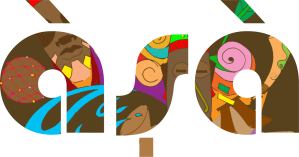The online space offers important opportunities to develop resources for African-language documentation and learning, whether drawing on the power of apps and online games to make language learning fun, or on social media, online databases and crowdsourcing as tools to make knowledge of African languages more widely available.
As in many languages, Yoruba names are pregnant with meaning, often containing references to family history, the circumstances of the child’s birth, or the parents’ or other relatives’ wishes for the newborn child. A couple of years ago on Africa in Words we discussed the significance of Yoruba names, and concerns about their Anglicization and loss of integrity, as reflected in this spoken word performance by Femi Amogunla:
Kola Tubosun, a Nigerian linguist, teacher, writer and blogger who specialises in the Yoruba language, was similarly concerned about the need to document and preserve Yoruba names in all their intricacy:
Sadly, today our names are being washed away by “civilisation”. We are raising children who are ignorant of this power (or meaning) of their names. Soon, one child at a time, a Yoruba name will be lost. Soon, one name at a time, the significance of the naming tradition will disappear.
And so, the Yoruba Names project was born, designed to combine knowledge of Yoruba with online database technology and the power of crowdsourcing:
This project seeks to create an online multimedia database of all Yoruba names; a place of knowledge for those who need it. People removed from their homeland can look to it and find a lost connection while those not familiar with the Yoruba culture can come there to learn about Yoruba names, spelling, etymology, meanings, stories, et al; a wiki of sorts, a free web-based multimedia repository of knowledge open to all; a dictionary; a project designed to reverse a trend and preserve a culture.
The Yoruba Names project began with a crowdfunding push, managing to raise over $5,000 from Yoruba language enthusiasts the world over.
Kola and his team have spent the last year building the database and populating it with as many names as they can. After its public launch on February 19th, users will be able to add their own names, definitions and information about the history and background of those names (such as the region of Yorubaland they originate from). Kola and the team plan to include audio links so users can hear the pronunciation of names – crucial for a tonal language where differing tones can radically alter the meanings of names. There are currently over 3,000 names in the database, and they’re aiming for over 10,000 names in the end.
The Yoruba Names project have also released a Yoruba keyboard layout for Mac and Android, which gives users a straightforward way to type Yoruba characters with tone marks and sub-dots.
African-language keyboard layouts are gaining traction elsewhere too (thankfully, since it is otherwise a very laborious process inserting special characters one by one); for instance, the Kasahorow keyboard app for Android allows users to type using characters for Akan (Fanti, Twi, Akuapem), English, Ga-Dangme, Gbe (Ewe, Ewegbe, Fon), Gikuyu, Hausa, Igbo, Wolof and Yoruba.
 Another African-language project which caught my eye recently is the Asa apps from Geniigames.com. This impressive range of beautifully-packaged apps are designed to help children learn about African languages and cultures through multimedia.
Another African-language project which caught my eye recently is the Asa apps from Geniigames.com. This impressive range of beautifully-packaged apps are designed to help children learn about African languages and cultures through multimedia.
They include animated folktales featuring favourite stories such as the tortoise or Sango and his wives, as well as apps designed to teach introductory Yoruba, Igbo and Hausa.
Like the Yoruba Names project blog, Genii Games also have a fascinating blog in which they talk about the joys and challenges of promoting Nigerian languages.

These are just a couple of examples from the growing world of online African-language resources. We’d love to hear about your favourite online resources or apps for African languages, especially those beyond the Nigerian examples we’ve featured here. Please leave us a comment below, or talk to us on Facebook or Twitter.
Categories: Reviews & Spotlights on...
 Archives spotlight – Past & Present: Maryse Condé – ‘Segu’ and ‘The History of the Cannibal Woman’
Archives spotlight – Past & Present: Maryse Condé – ‘Segu’ and ‘The History of the Cannibal Woman’  Review: Connection and Legacy – Remembering ‘Before Them, We’ (2022)
Review: Connection and Legacy – Remembering ‘Before Them, We’ (2022)  Words on…Past & Present: The International Black Speculative Writing Festival (London & Remote)
Words on…Past & Present: The International Black Speculative Writing Festival (London & Remote)  Review: Tragedy and Resilience in Lagos – The Truth About Sadia by Lola Akande
Review: Tragedy and Resilience in Lagos – The Truth About Sadia by Lola Akande
Thanks for shining the light on these initiatives.
You’re welcome.
Reblogged this on caslibraryblog.
Can I contact Administration?
I’ts important.
Thanks.
Reblogged this on Zuma Reads .